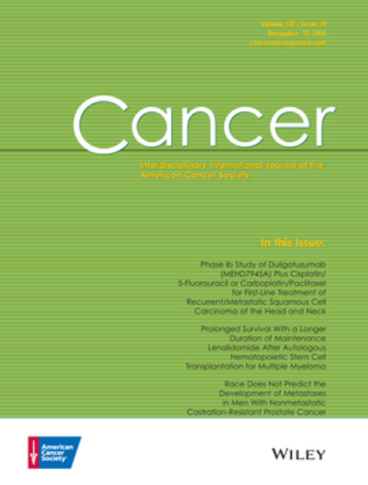Comparison of survival outcomes for patients with Lynch vs non-Lynch syndrome and microsatellite unstable colorectal cancer treated with immunotherapy
Abstract
Background
Alterations in mismatch repair (MMR) genes like MLH1, MSH2, MSH6, and PMS2 can lead to microsatellite instability–high (MSI-H) tumors. These mutations can be inherited, as in Lynch syndrome (LS), or occur de novo. Although immune checkpoint inhibitors (ICI) improves survival in MSI-H colorectal cancer (CRC) compared to chemotherapy, data comparing outcomes for patients with germline versus somatic MMR mutations are limited.
Methods
This retrospective study included patients from Mayo Clinic (Arizona, Minnesota, Florida) from 2008 to 2023. A total of 81 patient records were reviewed. Patients with MMR-deficient or MSI-H CRC (N = 18 LS, N = 63 non-LS) were included for analysis.
Results
Pembrolizumab was used in 65% of patients with LS and 94% of patients without LS, with median treatment durations of 11.7 and 8.8 months, respectively. Median overall survival (OS) for all stages was 82 months. There were no differences observed in OS for LS vs non-LS when patients in Stages II, III, and IV were analyzed separately. In Stage IV patients, BRAF V600E mutations were associated with worse OS compared to BRAF wild-type (hazard ratio, 2.69; 95% CI, 1.03–7.01, p = .043), with median OS of 19 vs. 113 months and progression-free survival of 12 vs. 95 months.
Conclusion
Patients with MSI-H CRC treated with ICIs exhibited similar outcomes regardless of germline or somatic MMR mutations. However, the presence of a BRAF V600E mutation was associated with a worse prognosis.

 求助内容:
求助内容: 应助结果提醒方式:
应助结果提醒方式:


